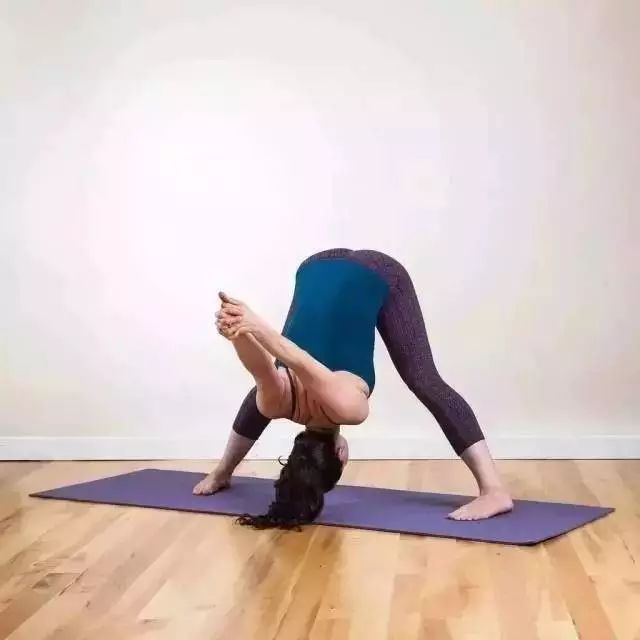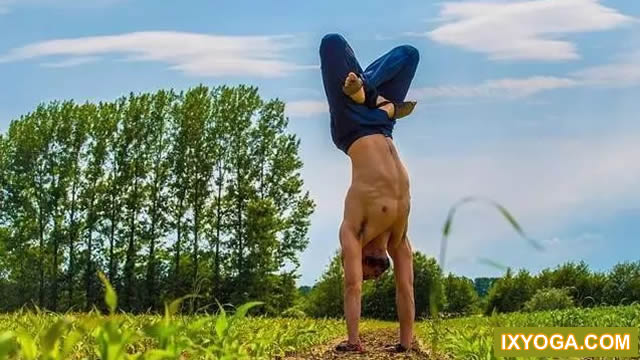Many people think that it’s OK to practice yoga with them
. 
If you do the same, you may lose your interest if you don’t have any breakthrough after practicing for a while, or you may have accumulated a lot of injuries after practicing for a long time! What you think of as “trying to straighten out” is probably “forcing the body to cause hyperextension”! What is hyperextension? Hyperextension means that the angle of the joint exceeds 180 degrees
. 
The normal range of flexion and contraction of human knee and elbow is 180 degrees, that is, the thigh and calf are in a straight line, and the upper arm and forearm are in a straight line
. 
It’s very simple to test whether it’s hyperextension or not
. 
When you think it’s extended to the maximum extent, you can look in the mirror from the side or ask a friend to take a picture for you to see which of the following: hyperextension of knee joint & hyperextension of knee joint & hyperextension of elbow joint: some students may say, “isn’t this normal? This is what I usually do
. 
If that’s the case, you should carefully observe and ask yourself if your legs are thicker? Can standing long knee ache? Do you have pelvic forward tilt and X-legs or O-legs? Yes, it’s probably the result of knee hyperextension when standing for a long time
. 
Hyperextension of the knee will put a lot of pressure on the knee, which is one of the important causes of knee pain
.
Hyperextension is often accompanied by the forward movement of the body’s center of gravity
.
When the pressure in the front of the knee becomes heavier and heavier, the gastrocnemius of the lower leg will instinctively exert force to maintain stability
.
In the long run, the lower leg will become thicker and thicker, just like wearing high heels
.
If the direction of hyperextension is not just forward, but inward or outward, it will evolve into an X-shaped leg or an O-shaped leg
.
In addition to the change of posture, long-term knee hyperextension will make the stability and control of the knee worse, and may even cause injury
.
It’s necessary to talk about the sequence of postural practice so that you can practice safely and continuously with a sense of achievement
.
Stage 1: increase the strength of physical strength and muscle ligaments
.
The first step of posture training is not to stretch the tendons, but to increase the strength of physical strength and muscle ligaments
.
Many people have this experience
.
At the beginning of class, they are often covered with sweat or yawn
.
This is the phenomenon of insufficient physical strength
.
After getting used to it for a while, you won’t be sweating all over again, but you will feel sore all over again
.
This is the reason why the body tissue is not strong enough
.
To this extent, practitioners should not be forced to be soft or eager to challenge the impossible postures
.
They should be strong enough to increase their physical strength after practicing for several months
.
It’s hard to say how long this period will last
.
Some people are young and energetic, and they will get used to it in a month or two
.
Some people have to wait for several months
.
However, even if you are young enough to have more than three classes a week and anxious to keep up with the progress, it is not appropriate, because although you can persist for a long time, your whole body strength is still clumsy
.
If you challenge difficult movements in this way, you will get hurt
.
So remember, at this stage, don’t care about whether your action is good or not, and don’t force yourself to complete the action that seems to be possible
.
The focus of this stage is to strengthen your physical strength and physical strength
.
When you feel strong enough, you can go to the next stage of training
.
Stage 2: relax
.
If you experience the relaxation well in the first stage and remember the feeling firmly in your heart, you can slowly explore how to relax your body in the second stage
.
So in the second stage of practice, when you hold there to maintain the movement, because you have enough physical strength, so a little support will not be as painful as when you first learned
.
You must learn to relax your body in this short time, not to let go of the movement, but to maintain the most perfect posture with the least effort, and find the most rigid part of the body to let it go
.
Stage 3: develop your own observation
.
In this stage, you also need to exercise your observation of your body
.
Because you need to practice relaxation, you need to find out which parts of your body are not relaxed enough
.
This is observation
.
Maybe at the beginning, you can only find a few parts
.
Don’t stop searching
.
Gradually, you can observe more and more parts at the same time
.
Your heart must be like the radar on a fighter
.
The old radar can only lock one or two enemy planes for tracking at a time, while the new radar can lock many enemy planes at a time
.
When you master this kind of practice, you can find many stiff parts in your body that are not relaxed enough, and learn to relax them one by one
.
No matter how long you practice yoga, you should be patient
.
The changes of your body will not be completed in a few weeks, and the study of relaxation and concentration is not a matter of three or two years
.
At this stage, you have to set your goal and direction, what you should do, and be clear in your mind
.
Don’t be confused
.
。
.

